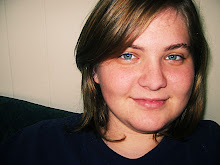This post is in response to this editorial, written by Meghan Cox Gurdon, which is called "Darkness Too Visible" and argues in favor of censorship and book banning, not to mention a culture of silence regarding issues like suicide and self-injury.It was with rising incredulousness culminating in angry disbelief that I read June 4th's Bookshelf column, "Darkness Too Visible."
The list of books Ms Gurdon (or whoever on your staff added the sidebar) recommended for parents to encourage their teens to read included Ray Bradbury's dystopian masterpiece Fahrenheit 451. Considering that the article ended by insisting (in a frankly holier-than-thou tone) that book banning/censorship is good for teens and therefore, good for society, one wonders if Ms Gurdon/WSJ Bookshelf editors have read the book. After all, Bradbury's entire philosophical/political purpose for Fahrenheit 451 was illustrate how even the smallest acts of censorship in the name of political correctness can lead to terrible and long-term consequences.
I've read the Twilight series and I used to work in a major bookselling chain (and still end up in a bookstore at least two or three times a month), so I'm well aware of the woeful state of much YA fiction. That, however, is true of any genre.
The important thing to do with teens isn't to tell them "don't read these books," it's to tell them to read. To read constantly. To read anything and everything and then to think critically about what they've read. And it is the parents' job to know what their kids are reading, to read it themselves, and be prepared to discuss issues as necessary. Or, be really revolutionary, and just talk to their kids. Engage in their lives! It's called parenting.
You know whose job it isn't to raise America's children? Book publishers, librarians, booksellers, teachers - none of them are tasked with raising children. You know whose job it is to parent children? Parents. That's why they're called parents.
By all means, parents of America, tell your children that Twilight isn't worth reading because it's a poorly-written piece of crap (I'd use a classier term but it just wouldn't be as apt) whose protagonist is one of the worst female role models in the history of literature. But don't summarily ban them. After all, if nothing else it will just make them want to read the banned books more, if only to see what all the fuss is about. Instead of focusing on what you don't want your kids to read, do some research and find out what book in the YA landscape are worth reading. And despite being in my late twenties, I've been doing a lot of YA reading lately specifically because I'm impressed with the availability of good fiction there - if you know where to look. Be aware enough of what's out there so you can offer alternatives - don't read Twilight, read The Vampire Diaries or better yet, one of LJ Smith's other series, which are even better. Give your kids The Hunger Games trilogy and talk about why what happens in those books is so disturbing and tragic and how we as a society can avoid going the same way. Give your kids Howl's Moving Castle and talk about how awesome it is. Give them Scott Westerfeld's Leviathan and talk about alternate histories and how they can help us look at actual history in a new light. Give them Pride & Prejudice and talk about the pros and cons of Mr Darcy, and why he's a better boyfriend than Edward Cullen.
If you haven't caught on yet, the point is to give your kids books, and then talk to them about the books they're reading.
I also wanted to address Ms Gurdon's point regarding the presence of tough issues like self-injury and suicide in YA fiction. She argues that addressing these issues in fiction for young people is something that should be discouraged and straight-out says that she thinks putting self-injury in a book will encourage other teens to self-injure. This is the only thing in her article that angered me more than the support of censorship. I am a staunch supporter of a non-profit organization called To Write Love on Her Arms, which exists to raise awareness of the issues of depression, addiction, self-injury, and suicide, particularly among teens and young adults. They also work to provide hope and help for people who struggle with those issues. One of the biggest reasons why we need organizations like TWLOHA in the first place is the culture of silence surrounding these issues. We need to encourage conversation about these issues, not discourage it. I struggled in silence with depression for nearly a decade because I was ashamed and afraid of what others would think of me if I reached out for help. It's attitudes like Ms Gurdon's that keep the silence - and the shame - in place.
The major take away from all of this is the following - talk to your children. Parent them yourself. It's your job.
And as Ray Bradbury was trying to say in writing Fahrenheit 451, censorship is never the answer.

WOW THIS ARTICLE WAS DISTURBING TO SAY THE LEAST!
ReplyDelete